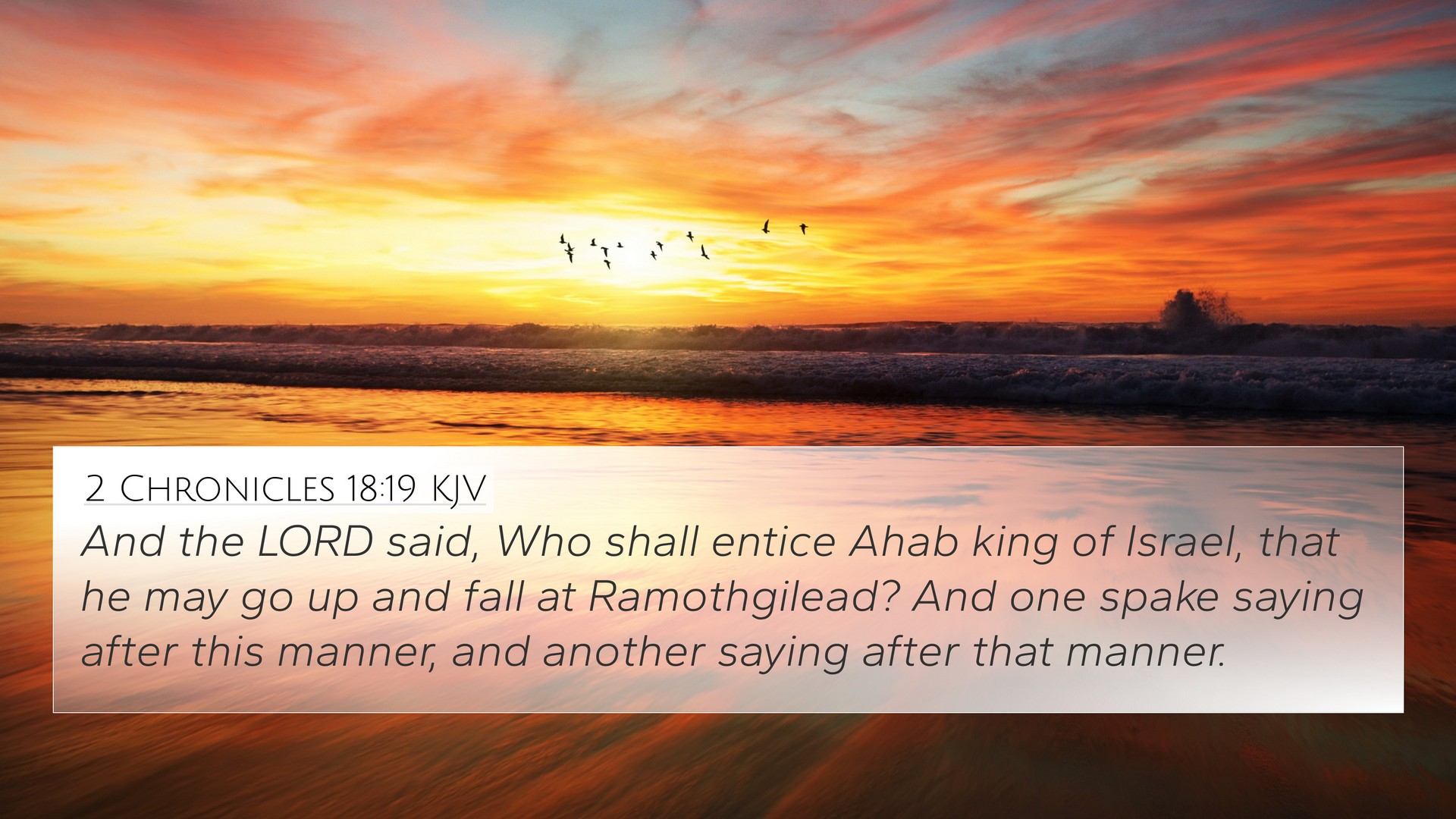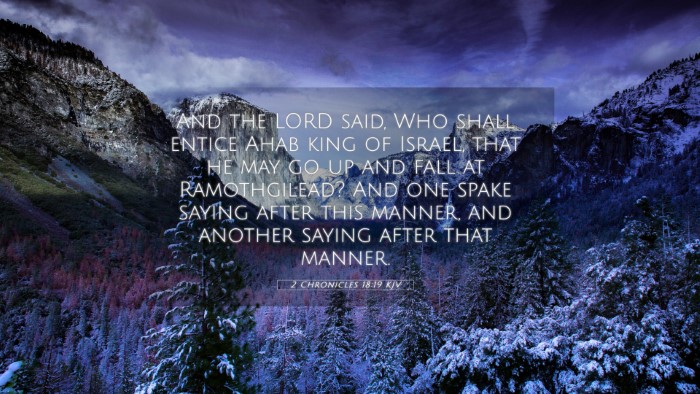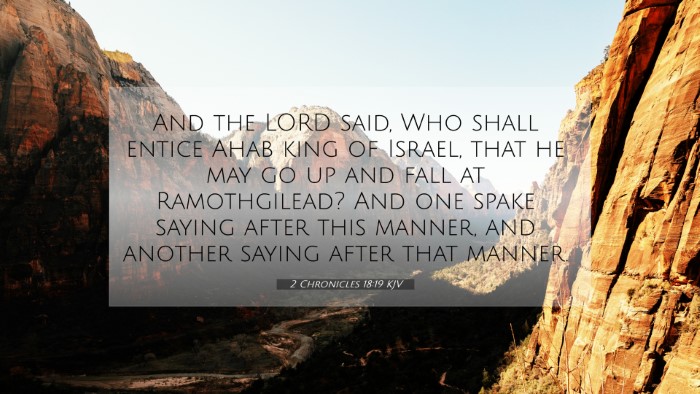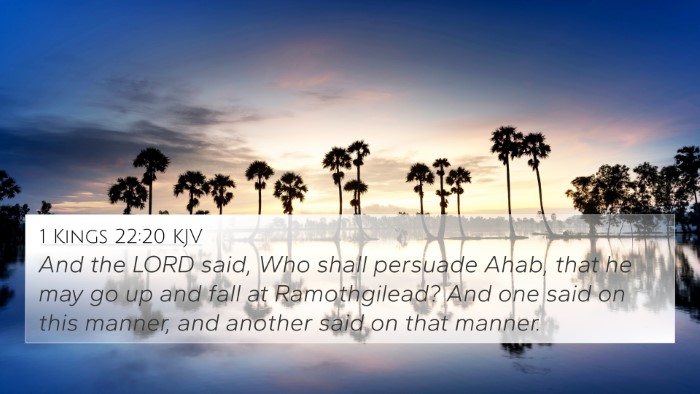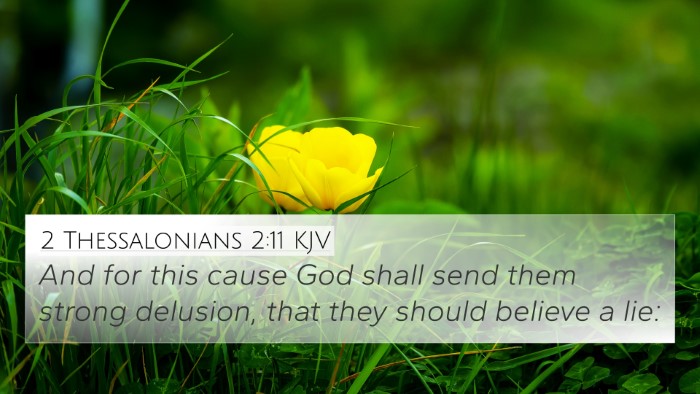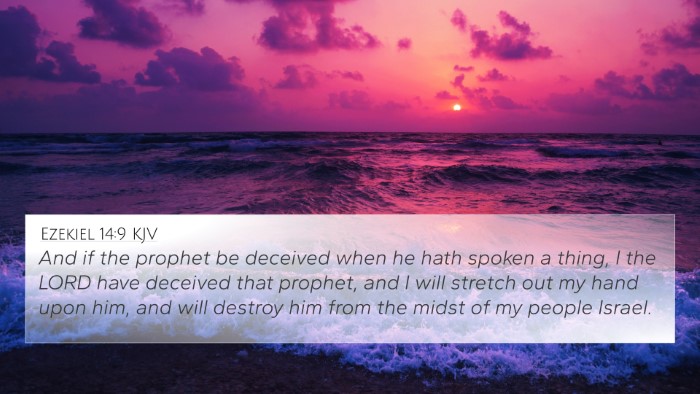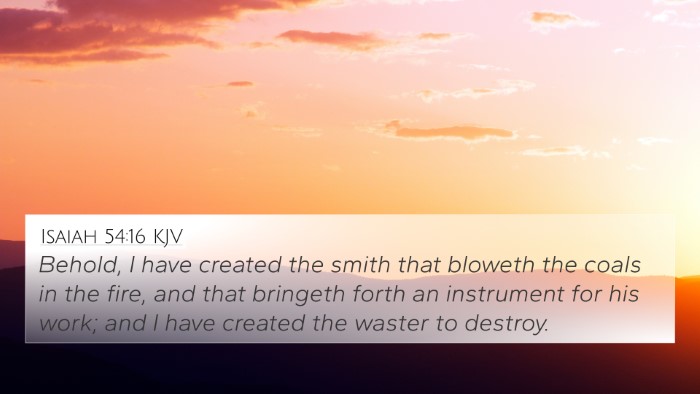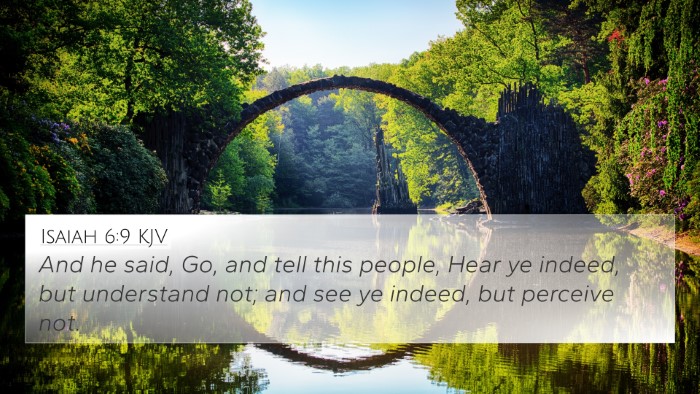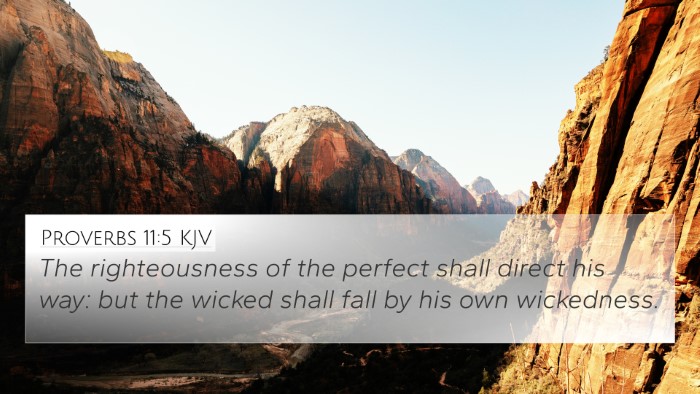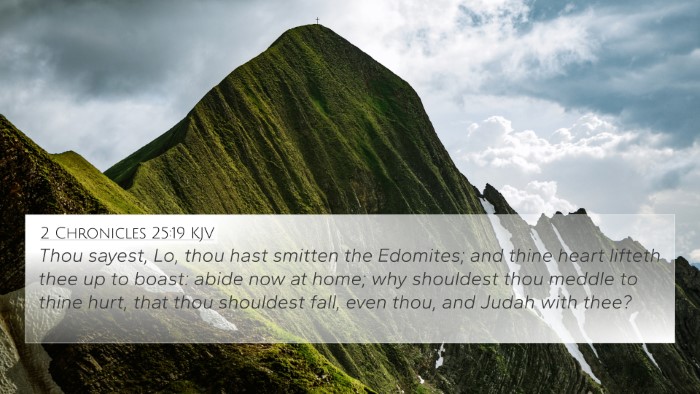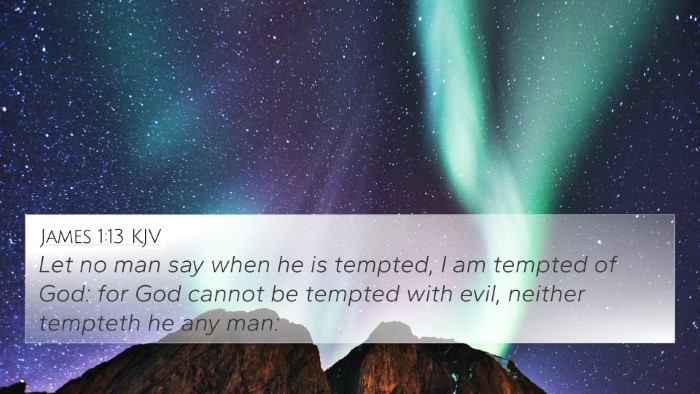Understanding 2 Chronicles 18:19
Bible Verse: 2 Chronicles 18:19 - "And the LORD said, 'Who shall entice Ahab king of Israel to go up and fall at Ramoth-gilead?' And one said this, and another said that."
Verse Meaning and Context
This verse occurs within a narrative that highlights the spiritual conflict and the interplay between divine providence and human agency. Here, God deliberates with the heavenly host about how to entice King Ahab of Israel to go into battle, ultimately leading to his downfall. The verse signifies God's sovereignty and His control over the events of human history, even in matters involving evil rulers.
Commentary Insights
-
Matthew Henry:
Henry emphasizes the concept of divine counsel and the deliberation in heaven or among the celestial beings. He suggests that God is not arbitrary in His actions but considers the intentions and responses of His creation. God’s inquiry about enticing Ahab serves to show the seriousness of Ahab’s rebellion and the impending consequences of his actions.
-
Albert Barnes:
Barnes notes the significant role of divine sovereignty and the responsibility of human choice. He discusses how the request for a volunteer to entice Ahab underscores the cooperative nature of future events, indicating that while God is in control, human decisions play a crucial role in executing His plans. This sets the stage for discussing the prophetic messages that eventually lead Ahab to his demise.
-
Adam Clarke:
Clarke delves into the nature of divine justice and how it operates within the narrative. He interprets the passage as a demonstration of how God uses various means, including prophetic deceits and false prophecies, to achieve His purposes when dealing with those who persist in rebellion against Him. This raises a critical evaluation of prophetic integrity and the idea of being led astray by desires contrary to God's will.
Cross-References
This verse connects with several other texts that explore themes of divine sovereignty, prophecy, and human agency:
- 1 Kings 22:19-23 - A parallel account elaborating on the divine counsel regarding Ahab's fate.
- Isaiah 10:6 - God's use of Assyria as an instrument of judgment is a reflection on divine providence.
- Romans 9:17 - highlights God's purpose in demonstrating His power through the actions of rulers.
- 2 Peter 2:1 - warns of false prophets, reflecting the deceptive nature of Ahab's advisors.
- Jeremiah 23:16-17 - addresses the consequences of following false prophecies.
- Ezekiel 14:9 - discusses how God may allow deception for purposes of judgment.
- Micaiah's Prophecy (1 Kings 22:25) - the specific God-given vision that reveals Ahab's fate.
- Proverbs 19:21 - affirms that many are the plans in a person’s heart, but it is the Lord's purpose that prevails.
- Job 12:16 - reflects on how wisdom and might belong to God, tying the theme of divine control together.
- Revelation 17:17 - suggests God puts into the hearts of rulers to accomplish His will in the end times.
Thematic Connections
This verse also fits within the broader thematic connections related to:
- Divine Sovereignty: The absolute control God holds over human affairs.
- Prophetic Integrity: The importance of discerning true prophecies from false ones.
- Judgment and Justice: How God brings about judgment on those who oppose Him.
- Human Agency: The role human choices play in the unfolding of God’s plans.
- Spiritual Warfare: The conflict between good and evil forces in the heavenly realms.
Application for Study
For readers seeking to deepen their understanding of this verse, consider these avenues:
- Utilize a Bible concordance to explore cross-references related to Ahab's story.
- Engage in a cross-reference Bible study focusing on the themes of divine judgment and human rebellion.
- Look into Bible reference resources to find additional insights on prophetic literature.
- Compile Bible verses that relate to each other to see the interconnectedness of Scripture.
- Reflect on the inter-Biblical dialogue between the Old Testament and New Testament regarding prophecy and fulfillment.
Conclusion
2 Chronicles 18:19 serves as a profound reminder of God’s omniscience and governance over the affairs of humanity, even using wicked intentions for righteous purposes. It invites believers to ponder the implications of their choices and the sovereignty of God in the face of human rebellion.
